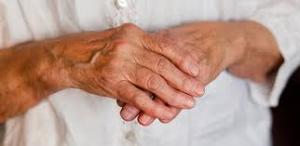

MedFriendly®


Acampsia
Acampsia is a rarely used term for stiffening or
rigidity of a joint or limb for any reason.
Acampsia can occur in numerous medical
conditions, most notably Parkinson’s disease.
Parkinson's disease is a type of brain disorder
that leads to serious difficulties with muscle
movements, including rigid and stiff joints.
A man with acampsia.
Acampsia can occur during seizures, typically manifested by stiffening of the arms and/or
legs. Seizures are involuntary muscle movements and/or decreased awareness of the
environment due to overexcitement of nerve cells in the brain. Acampsia can also occur
in catatonia. Catatonia is an abnormal change in muscle tone caused by either physical
or psychological factors. Acampsia in catatonia can manifest as fixed, rigid, and stiff
bodily positions held for extended periods of time.
FEATURED BOOK: Principles and Practice of Movement Disorders
Acampsia can occur as a result of the normal aging process due to less fluid in the joint
space, which causes the joints to move less smoothly. Acampsia is also a natural
occurrence after death when rigor mortis sets in. Rigor mortis is the stiffening of a
corpse’s limbs due to chemical changes in the body after death.
Acampsia comes from the Greek word "a" meaning "without" and the Greek word “kapto”
meaning “to bend.” Put the words together and you have “without to bend.”
"Where Medical Information is Easy to Understand"™
















